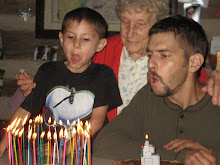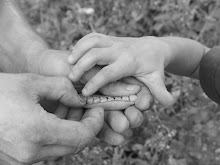Clayton's Miracles
- 1. Life after a terminal cancer diagnosis as an infant
- 2. Learning to walk after being paralyzed as an infant
- 3. Having his son, Max after being told that he was infertile due to the cancer & its treatment.
- 4. Making the adoption connection with Violet to give his parents a second grandchild.
- 5. Waking up from a coma and diagnosis of persistent vegetative state.
- 6. Retention of cognitive abilities despite testing that indicated only his brain stem was functioning.
- Future # 7. Learning to walk and talk again.
- Future #8. Being Max's hero and raising him into adulthood.
Under Construction
Wednesday
Benefit Night
Saturday
maybe not...
Friday
Prayers
treatment
Treatments and drugs
By Mayo Clinic staffYour doctor may prescribe medications that lower blood pressure. However, the best treatment for most pheochromocytomas is surgery to remove the tumor.
Medications
Medications used to treat high blood pressure associated with pheochromocytomas include:
- Alpha blockers. Alpha blockers, also called alpha-adrenergic blocking agents or alpha-adrenergic antagonists, relax certain muscles that help small blood vessels remain open. They work by keeping the hormone noradrenaline (norepinephrine) from stimulating the muscles in the walls of smaller arteries and veins. This stimulation makes the vessel walls constrict. Blocking that effect causes the vessels to remain open and relaxed. This improves blood flow and lowers blood pressure. Examples of alpha blockers include phenoxybenzamine (Dibenzyline), doxazosin (Cardura), prazosin (Minipress) and terazosin (Hytrin).
- Beta blockers. Beta blockers, also known as beta-adrenergic blocking agents, make your heart beat more slowly and with less force. They work by blocking the effects of the hormone norepinephrine. This action slows down the nerve impulses that travel through your heart. That means your heart doesn't pump as hard because it needs less oxygen and blood. Beta blockers also slow down the release of the enzyme renin from your kidneys, helping keep blood vessels dilated. Examples of beta blockers include atenolol (Tenormin), metoprolol (Lopressor, Toprol XL) and propranolol (Inderal LA).
For a pheochromocytoma, alpha blockers are used first to return your blood pressure back to within normal limits. Once your blood pressure is lowered, beta blockers can help control a rapid or irregular heartbeat. Both alpha and beta blockers are used in preparation for surgery.
Surgery to remove an adrenal gland
The most common treatment for a pheochromocytoma is surgical removal of the entire affected adrenal gland. In most cases, signs and symptoms then disappear. Blood pressure usually returns to normal soon after surgery. Before surgery, your doctor will prescribe medications to block the effects of the adrenal hormones and control blood pressure. If both adrenal glands are affected by pheochromocytoma and are surgically removed, you'll need to take medication to replace the other hormones once produced by these glands.
Laparoscopic surgery an option
Depending on the size and location of the tumor, laparoscopic surgery may be performed. Laparoscopic surgery involves inserting instruments through several small incisions. This procedure may result in quicker recovery when compared with conventional surgery, which requires a larger incision. Laparoscopic surgery isn't for everyone, however. Talk to your doctor about this less invasive technique to see if it's an option for you.
Surgery may not be possible
Sometimes surgery isn't an option because of the way the tumor is growing or because the tumor has spread (metastasized) to other parts of your body. If a pheochromocytoma is cancerous (malignant), treatment may go beyond medication and surgery to include radiation, chemotherapy or destroying the function (ablation) of arteries that supply blood to the tumor.
pheochromocytoma-the name of his tumor
Park CJ, Shim JY.
Department of Anesthesiology, Catholic Medical School, Seoul, Korea.
Pheochromocytoma are functioning tumors which arise in chromaffin tissue of adrenal gland. The signs and symptoms of pheothromocytoma results from the release of the highly potent amines, epinephrine and norepinephrine by the tumors. This tumor release both epinephrine and norepinephrine into the blood stream for distribution to distant sites of action. Circulating norepinephrine produces widespread vasoconstriction, causing increased peripheral resistance and resulting in increased systolic, diastolic and mean arterial pressures. The direct effect on the heart is to increase the rate and force of contraction. As important effect is the reduction of plasma volume caused by prolonged increases in circulating norepinephrine and epinephrine. These adrenergic aminess have prominet metabolic as well as hemodynamic effects. The increase oxygen consumption and elevation of blood glucose and lactic acid level caused by epinephrine are much more marked than the increase produced by comparable amounts of norepinephrine. Anesthetic management of pheochromocytoma should considered prevent serious alterations in blood pressure. So, We present the case of anesthetic management for pheochromocytoma which control of hypertensive crises by the use of a intravenous infusion of sodium nitroprusside.
Thursday
Good Bad News...if there is such a thing.
Please keep Clayton in your prayers. Over the past few weeks, maybe it's even been a month, Clayton has been at a stand still with progress in his recovery. He takes a step or two forward and then a few back.
They've especially had a very difficult time regulating his blood pressure. The doctors now believe that he may have a tumor in his adrenal gland. (For the members of the Sitko family and those attending the benefit on Saturday: I told Grandmom Sitko that it's a "cyst" Please don't mention the "c" word to her. We don't need to have her become so worried that she falls again or can't sleep at night). This gland sits on top of the kidneys and most likely received radiation from his cancer treatments as an infant. We're hoping it's not cancerous. They have not been able to confirm this with testing because his myoclonis has been intense, this is the seizure like jerking movements that he experiences when he's ill. Fortunately, they were able to get them undercontrol at the expense of his alertness. The medications that control it well, have a sedative effect. He is having a CAT scan now, as I write.
He has had a really tough day in hearing this news with tears and feelings of hopelessness. We hope that the doctors will be able to find a way to control his myoclonis, get hopeful test results while they find the cause of his stagnation in recovery and high blood pressure.
We are still hopeful that he will make a full recovery and be home with us by the end of the summer. If you are comfortable doing so, please spread the word and ask others that you know to pray, too.
Love,
Mandy





















